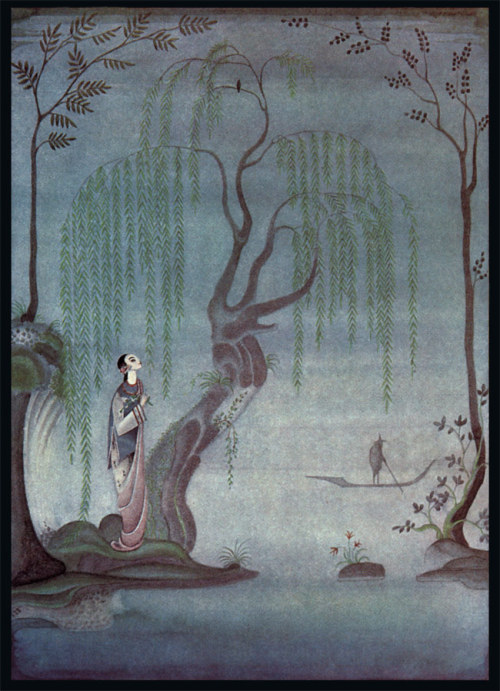It's obvious from the tales of Hans Christian Andersen that he valued nature and was suspicious of too much dependency on technology. His story The Nightingale is a perfect example: it tells of a Chinese emperor and his subjects who got bored with a nightingale that sang beautiful melodies and instead became obsessed with a mechanical nightingale; the people loved the predictability and repetition of the mechanical bird, and the real bird flew off. However, the mechanical bird eventually broke down, and when the emperor was sick, only the real nightingale could restore his spirits.
As a writer in the Romantic era, this embodiment of ideals was typical. According to N. Ingwersen, in the Romantic era people looked down on the logical thinking of the Age of Reason which preceded it. "The Romanticist prefers nature to culture--the city is deemed a place of corruption, whereas nature is the place for those who are in touch with their natural instincts. Of course, folklore appeals to the Romantic mind, for through those age-old tales the voice of the people, unspoiled by civilization, expressed the wisdom of the past."
Kay Nielsen
Andersen's distrust of technology may have also had something to do with the fact that he had a very difficult childhood, which Wikipedia says is partly due to the Industrial Revolution. Wikipedia also quotes fairy tale friend Heidi Anne Heiner of Surlalune: "The tale's theme of "real" vs. "mechanical/artificial" has become even more pertinent since 1844 as the Industrial Revolution has led to more and more artificial intelligences, machines, and other technologies. The tale gains more poignance in the age of recorded music."
Vilhelm Pedersen
Also dealing with the issues of real/artificial is Andersen's fairy tale The Swineherd, in which a princess is condemned for preferring mechanical toys and a dirty swineherd to a beautiful nightingale and rose given to her by a prince (who is, incidentally, disguised as the swineherd). An older translation ends with the prince saying, "I am come to despise thee...thou could'st not prize the rose and the nightingale." The wording was so similar I almost wondered if Marilyn Singer's Beauty and the Beast poem, "Longing for Beauty," was referencing this tale: "A moist muzzle can welcome a rose/A hairy ear can prize a nightingale, singing." (It's been a while since I've mentioned this book, but even though I'm not super into poetry or have any reason to own children's books, Marilyn Singer's Mirror, Mirror book of reversible poems is SO GOOD!!!)
Although traditional Proud Princess tales like this usually end with the princess being humbled yet falling in love with the prince, Andersen gives the story a more tragic ending (not unusal for him though) in which the prince leaves and she is left alone, driving home the point even more that those who cannot appreciate nature=bad and unforgiveable.
In this case Andersen comes across as one of those authors who almost eerily predicted the future, since technology and machines have come to play even more prominent roles in our daily lives. I always think these tales are a good reminder to unplug more often, but obviously as one who is posting all of this on a blog and half of my sources were online, I believe technology is a very useful tool if we use it well.



No comments:
Post a Comment